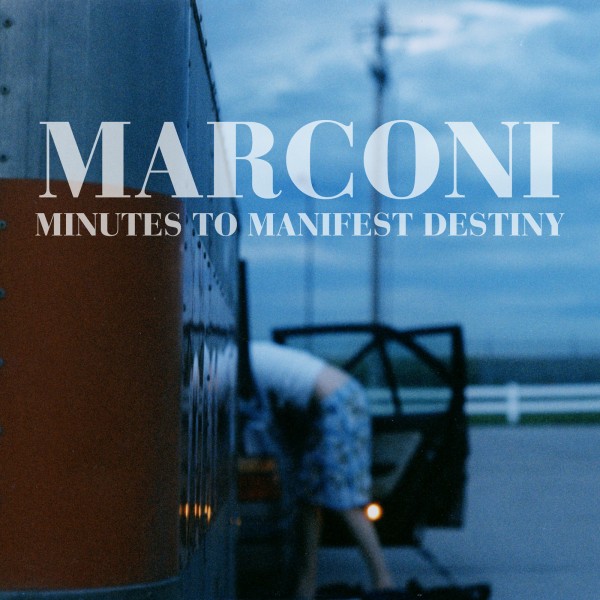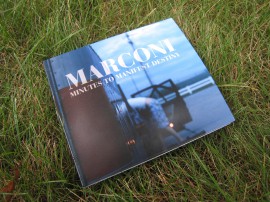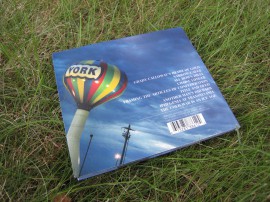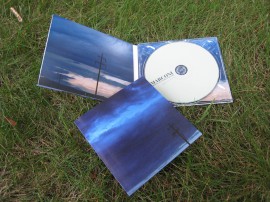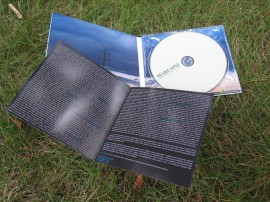Minutes to Manifest Destiny
1. Grady Calloway’s Heart Of Gold
2. Narrow Gauge
3. All Down Hilel
4. Chaise Longue
5. Framing The Articles Of Confederation
6. Title And Deed
7. Another Man’s Rhubarb
8. Iphegenia At Transylvania
9. The Cold War Is An Ice Age
……………………………………………………………………………………………………………………………
……………………………………………………………………………………………………………………………
PRESS RELEASE
Marconi was born during frontman Luke Kirkland‘s first viewing of Blue Velvet.
In the film, characters played by Dean Stockwell and Dennis Hopper employ Roy Orbison’s masterpiece “In Dreams” as a soundtrack to harrowing performances of their sadistic urges. Referring to the song simply by its first words, Stockwell and Hopper transform the sweetness of “Candy Colored Clowns” into a twisted film memento. Kirkland explains: “It wasn’t until I was much older that I was able to recognize the difference between the meaning of that violence and the occasion for it.” Nevertheless, the recontextualization of that classic pop epic threw the subtleties of Orbison’s composition into overdrive: the majesty of the song’s many secreted sentiments radically informed Kirkland’s approach to songwriting.
Cultivating this influence in the years following, Kirkland would pen a series of solo rock compositions while drumming in Boston post-punk/math-pop act Night Rally. In the Spring of 2005, he dubbed the project Marconi, after the street that provides the main access to the one family home that had remained consistently so throughout his life: his Grandmother’s house in New Orleans. When only a few months later Hurricane Katrina devastated the Gulf Coast, the name proved fortuitous. As terrifying images and stories filled the news in the storm’s wake, a family member forwarded to Kirkland a satellite image of the southern shore of Lake Ponchartrain: the water had flooded surrounding neighborhoods, rolled down Marconi Drive, and stopped at the corner of his Grandmother’s block, leaving her house undamaged.
Kirkland began recording and arranging around acoustic demos in late 2005 and into 2006. In August, Night Rally disbanded and Kirkland returned to Santa Fe to complete the final year of his undergraduate degree. There he reunited with former schoolmate Robert Peckham. They quickly struck up a musical camaraderie. For about a year, the two worked together casually, sharing projects and discussing ideas as Kirkland finished recording the first Marconi songs. When Kirkland decided it was time to return to Massachusetts, Peckham offered his support to a full-band outing. By October the two had relocated and rounded out the lineup with friends from the local music scene drawn from a veritable who’s who of Boston royalty: Piles, The Bon Savants, Mystery Roar, These Thieves, The Campaign For Real Time, Drug Rug, and George Lewis Jr.
What the new recruits encountered was a fully-formed brain-child: nine meticulously crafted songs built on the mirroring of opposites. Familiar chord relations dive together through winding phrases punctuated by striking key changes. Sections combine and vacillate between softness and loudness, ease and tension, atmosphere and foundation. Equally fed by the influence of forebears and peers, old-guard standards like Roy Orbison, Scott Walker, and David Bowie engage old-soul contemporaries like Neko Case, Spoon, The Walkmen, and Department Of Eagles.
Similarly, the lyrical motifs–geography, communication, migration–convey an old-world narrative pregnant with new-world concerns. Individual stories are abstracted to mirror larger historical events. Recurring personal themes of isolation and relocation find themselves party to studies in territorial expansion. The building of the Trans-Continental Railroad becomes the scene for an impossible romance; the migration of early humans across the Bering Strait to North America occasions musings on risk and opportunity. In these artificial contexts, each song extends personal moments and periods into metaphors for the quest to achieve some measure of great and summary personal fulfillment.
The album is not much more than what its title suggests: some several songs in search of security, or many Minutes To Manifest Destiny. But as the success of the compositions will surely not suffice for the achievement of their lyrical concerns, Marconi have set their sights on breathing life into the music. In performance, the five-piece band renders the thick textures of the recording for a more visceral experience attuned to the dynamics of mood and the power of restraint. And while the band has cut its teeth on the debut album, Kirkland has prepared a bevy of new songs for the creative input of the new members. With the band hot on the trail of their growing catalog, the quality of material and their early success suggest a burgeoning whirlwind in the Boston music scene. The five are eager to combine forces to raise a project that has been gestating for nearly a decade. And sufficed to say, it’s about time.
In the end, the music speaks for itself. Marconi’s is a brave new world of wireless telegraphy and transcontinental vocal conveyance. It is a world where references to Batman and B.I.G. sit side by side an interpolation of the mythology of the Trojan War. It is written in a poetry that foregoes simple politics for the uncertainties of the human condition. It is told with yearning and tempered by poise.
And they’re leaving it to posterity for you and yours.
……………………………………………………………………………………………………………………………
composed, performed, recorded, and mixed by Luke Kirkland
artwork by Luke Kirkland
mastered by Alan Douches at West West Side Music
……………………………………………………………………………………………………………………………
PRESS
Photo Credit: Josh Reynolds for The Boston Globe
The debut album from Marconi, Minutes to Manifest Destiny, opens with the line “Coast to coast by phone’’ and ends up dropping us off somewhere in the Ice Age. Its thickly layered indie-rock fades away into a foggy classroom window view of Bering Strait migrations frozen in time. A surreal gathering of bells and quivering electronic dissonance echoes across the frost-bitten acoustic guitars, trailing off on one last unfinished note. You get the feeling that this band still has a lot more ground to cover — and that we have a lot of catching up to do.
—The Boston Globe
“Grady Calloway’s Heart of Gold” is serious business, teeming with spiraling melodies, split-screen narrative and wordplay, shag-carpet organ chords, and a motley percussion crew Tom Waits could be proud of.
—The Boston Phoenix, from their MP3 of the Week feature
It’s refreshing to see someone release a disc without trying too hard to brand the band or create the latest multi-adjective subgenre. The bob-yer-head quality of “Narrow Gauge,” the meditative pace of “Another Man’s Rhubarb,” the slightly discordant melodies of “The Cold War is an Ice Age”: Whichever track strikes your fancy the most, Minutes to Manifest Destiny is comfortably likeable and easy listening for any ear.
—The Weekly Dig
Marconi may be your favorite band you’ve never heard of. Musically, there is a lot of space held together by a lone synthesizer or delayed guitar. The lyrical content reflects this notion of space and time as Kirkland makes going from his normal singing voice to a falsetto seem far too easy. Overall, Minutes To Manifest Destiny is a solid indie-pop effort from a band you will surely be hearing more about in the coming weeks, months and years.
—Boston Band Crush
Minutes to Manifest Destiny is one beautiful pop record, full of crooned melodies and tongue twisting lyrics draped skillfully over droning repetitive riffs. The results are stirring. This is majestic pop, at a majestic pace, often with melancholic overtones. Shimmering guitars (and the occasional acoustic (perhaps ukelele) strumming) spread forth throughout the proceedings. Kirkland’s elastic vocal delivery and flow are very refreshing within the context of the “rock” sounds found on this record. The record’s best track is called “Chaise Longue”. And it’s a WHOA. One of the better Boston area releases of the year.
—Bodies of Water

